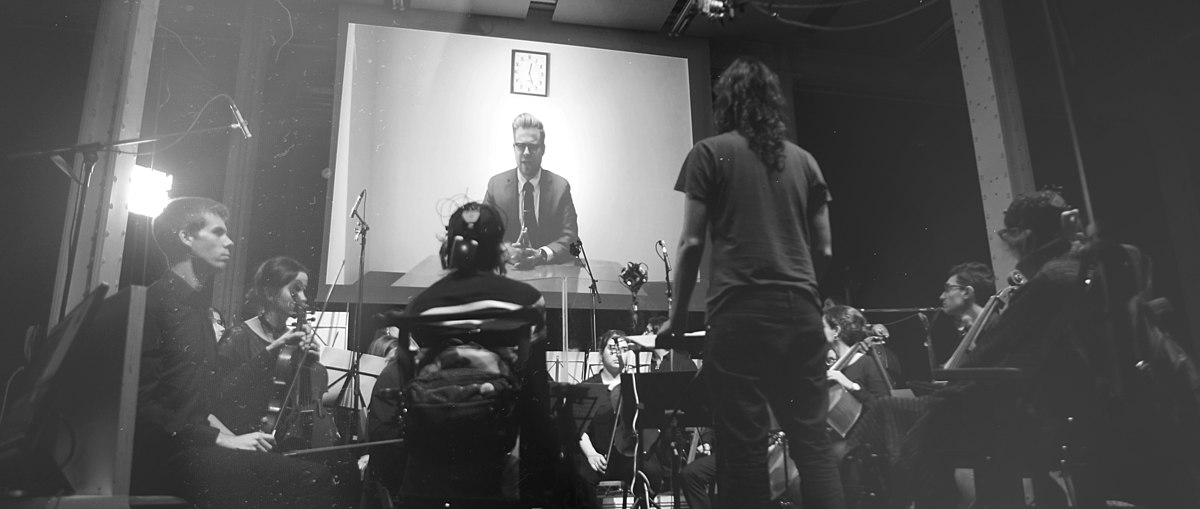The Impact of Biographical Films: Bridging Reality with Cinematic Art
In the vast tapestry of cinema, where imagination often takes precedence over fact, there exists a category that stands apart for its allegiance to truth: the biographical film. These films, colloquially known as "biopics," endeavor to capture the essence of a person's life, distilling their triumphs, tribulations, and the socio-cultural milieu they inhabited onto the silver screen. This cinematic genre has proven to be a powerful conduit for storytelling, offering audiences not only entertainment but also insight into the human condition. As we explore the impact of biographical films, it becomes evident how they bridge the gap between reality and cinematic art.
The Allure of Real-Life Stories
The fascination with real-life stories is not a new phenomenon. Since the dawn of storytelling, humans have been captivated by the lives of others, especially those who have shaped history or defied odds. Biographical films tap into this innate curiosity, allowing viewers to walk in the shoes of figures they might otherwise never encounter. This genre has the unique ability to humanize historical legends and contextualize the lives of modern icons, making their experiences relatable and accessible.
The allure of biographical films lies in their promise of authenticity. In an era where misinformation is rampant, audiences crave narratives grounded in truth. While artistic liberties are often taken to enhance storytelling, the core events, personas, and timelines in biopics remain largely undistorted. This truth-based foundation establishes a trust between the filmmaker and the viewer, who invests their time in learning rather than suspending disbelief.
Educational Value: History Through Cinema
Biopics serve as a dynamic educational tool, transforming dry historical facts into engaging narratives. They have the potential to bring history to life, offering vibrant reenactments of significant events and defining moments. For students and educators, these films provide a visual complement to textbooks, sparking interest and aiding retention of historical knowledge.
Consider films like "Schindler's List," which illuminates the atrocities of the Holocaust, or "12 Years a Slave," which exposes the brutal realities of American slavery. These films do not shy away from the harrowing aspects of history, and in doing so, they foster a deeper understanding and empathy in viewers. By portraying the emotional and human sides of history, biopics encourage us to reflect on the past and its implications for the present and future.
Shaping Public Perception and Cultural Memory
The stories told through biographical films wield a considerable influence over public perception and cultural memory. Biopics can shape the legacy of their subjects, immortalizing their contributions and ensuring their stories are not forgotten. Through a blend of cinematic elements such as screenplay, direction, and acting, biographical films craft compelling narratives that can alter or reinforce the public's understanding of historical figures.
The portrayal of Steve Jobs in the film "Steve Jobs," for example, highlights his visionary genius while also examining his complex personality. Similarly, "The Social Network" delves into the origins of Facebook, presenting a narrative that has contributed significantly to the public discourse regarding technology and privacy.
However, with this power comes responsibility. Filmmakers must navigate the delicate balance between artistic interpretation and factual representation. Misrepresentations can lead to distorted perceptions, impacting how future generations understand both historical events and figures. This aspect underscores the importance of thorough research and a commitment to truthfulness in biographical storytelling.
Cultural Reflection and Social Commentary
Biographical films often transcend mere recounting of personal histories; they hold a mirror to society, reflecting its values, struggles, and transformations. Through the lives of their subjects, these films comment on broader social and political issues, prompting viewers to contemplate the parallels between the past and present.
Films like "Milk," which chronicles the life of Harvey Milk, an American politician and gay rights activist, shed light on the LGBTQ+ movement and the ongoing fight for equality. Similarly, "Hidden Figures," which tells the story of African-American women mathematicians at NASA, challenges traditional narratives of science and space exploration by highlighting the intersection of race and gender.
In this way, biographical films contribute to cultural conversations, encouraging dialogue and fostering a deeper understanding of social issues. By situating individual stories within the context of larger societal changes, these films provide a lens through which audiences can examine and critique contemporary social dynamics.
The Art of Performance: Bringing Real Characters to Life
One of the most compelling aspects of biographical films is the transformative performances of actors tasked with embodying real-life figures. The art of portraying a historical or contemporary personality involves extensive research and a nuanced understanding of the character's motivations, mannerisms, and psyche.
Actors such as Meryl Streep, who famously portrayed Margaret Thatcher in "The Iron Lady," or Daniel Day-Lewis, who embodied Abraham Lincoln in "Lincoln," are lauded for their ability to vanish into their roles, offering performances that blend authenticity with artistic interpretation. Their portrayals lend credibility to the narrative and engage audiences on an emotional level, allowing viewers to forge a connection with the subject of the film.
Yet, these performances also invite scrutiny and debate, with audiences deliberating over the accuracy and interpretive choices made by the actors. Such discussions highlight the collaborative nature of filmmaking, where an actor's interpretation is influenced by direction, script, and personal insight.
As we delve deeper into the profound impact of biographical films, it is crucial to recognize their role in shaping both individual understanding and collective consciousness. These films stand as a testament to cinema's power not only to entertain but to educate, provoke thought, and inspire change. In our next segment, we will explore further dimensions of biographical films, including their influence on the film industry and their emotional resonance.
Influence on the Film Industry: Innovations and Challenges
Biographical films have exerted a significant influence on the evolution of the film industry, pushing the boundaries of narrative storytelling while also presenting unique challenges. As a genre, biopics demand a meticulous balance between drama and factual accuracy, which often requires innovative storytelling techniques and a deep reservoir of creativity from filmmakers.
One of the notable contributions of biographical films to the film industry is the blending of documentary-style realism with fictionalized elements to enhance engagement. For instance, directors often employ a non-linear narrative structure to juxtapose various phases of a subject’s life, creating a more dynamic and compelling storyline. This approach not only holds the viewer’s interest but also allows for a richer exploration of the character's development and the pivotal moments that shaped their journey.
Technological advancements have further augmented the storytelling capabilities of biopics. The use of digital effects, historical reconstructions, and authenticity in setting and wardrobe transports audiences to different eras with remarkable fidelity. Films such as "The Aviator," which chronicles the life of Howard Hughes, demonstrate how visual effects can be deftly used to recreate historical settings while maintaining narrative fluidity.
Yet, the biopic genre is not without its challenges. One significant hurdle is the potential for controversy, especially when portraying individuals still in living memory or subjects with complex, multifaceted legacies. Filmmakers often face backlash from the depicted individual's family or admirers who may dispute the accuracy of the portrayal. This pressure underscores the need for a delicate balance, where artistic expression meets diligent research and sensitivity towards the subject matter.
Emotional Resonance and Audience Connection
The emotional resonance of biographical films is perhaps one of the most compelling aspects that draw audiences to this genre. By delving into the intimate details of a person's life, these films offer a raw, unfiltered glimpse into emotional experiences, making them deeply relatable regardless of the viewer’s individual background.
Audiences are often moved by the universal themes embedded in biographical narratives—perseverance against adversity, the pursuit of dreams, the impact of personal choices, and the struggle for identity and acceptance. These themes resonate on a personal level, often leaving viewers to reflect on their life choices and the world around them.
Moreover, biopics offer a unique form of identification. Through the lenses of various historical and contemporary figures, viewers are able to vicariously experience diverse lives, perspectives, and cultures. This identification fosters empathy and understanding, bridging divides and encouraging a more nuanced view of humanity.
Take, for example, "Erin Brockovich," a film that beautifully captures a single mother’s relentless fight against environmental injustice. The story's emotional core—centered around tenacity in the face of insurmountable odds—strikes a chord with audiences, evoking empathy and encouraging reflection on social justice issues.
A Platform for Marginalized Voices
Biographical films also hold the potential to serve as a platform for marginalized voices, highlighting stories that may have been overlooked or undervalued in mainstream discourse. They offer a stage where the bravery and contributions of underrepresented groups can be acknowledged and celebrated.
Films like "Selma," which follows Dr. Martin Luther King Jr. during a pivotal moment in the civil rights movement, offer vital historical insights while providing a voice to the marginalized communities they depict. These narratives serve as a powerful reminder of cinema’s role in not only reflecting society but actively participating in cultural dialogue and change.
Additionally, biopics can amplify voices that challenge societal norms and inspire transformative thought. "The Theory of Everything," focusing on the life of physicist Stephen Hawking, provides a poignant portrayal of living a full life despite severe physical limitations, challenging preconceived notions about disability.
Economic and Critical Success
The commercial success of biographical films is frequently tied to their ability to tap into their audiences' emotions and intellectual curiosities. Well-executed biopics often enjoy both box office success and critical acclaim, celebrated during award seasons for their storytelling, direction, and performances.
The financial viability of biopics lies in their expansive audience appeal; they attract viewers seeking authenticity, education, and emotional engagement. For studios, investing in a biographical film with a compelling story and a talented cast and crew can be a lucrative proposition. Films like "Ray," "Gandhi," and "A Beautiful Mind" showcase how biopics can become global sensations, resonating with audiences across cultures and contributing to the film industry’s economic ecosystem.
Critically, biographical films often sweep awards circuits, celebrated not only for their storytelling but also their ability to elevate cinematic craft into a form of artistic homage to real-life figures. Such accolades further reaffirm the genre’s prestigious place within the wider cinematic landscape.
The Future of Biographical Films
As we look to the future, the role of biographical films in cinema is poised to expand. Advancements in film technology, coupled with an ever-growing interest in authentic narratives, provide fertile ground for the evolution of this genre. With a global audience increasingly connected and informed, biopics have the potential to transcend traditional boundaries and explore an even greater variety of stories and perspectives.
Furthermore, the rise of digital streaming platforms has democratized access to biographical films, ensuring that stories from around the world can reach a diverse, global audience. This accessibility stands to enrich public discourse and showcase untold narratives, further solidifying the impact of the biographical film genre.
In our final part, we will delve into the relationship between biopics and diverse narratives, examine the ethical considerations inherent in biographical storytelling, and explore how audiences can engage with these films beyond the screen.
Diverse Narratives: Expanding the Canvas
As the realm of biographical films continues to evolve, there is a growing recognition of the importance of diverse narratives that reflect the multiplicity of human experiences. The expansion of biopics to include stories from various cultures, backgrounds, and perspectives enhances the genre’s richness and relevance, encouraging inclusivity in the cinematic landscape.
Historically, biographical films have been dominated by stories centered around Western figures and narratives. However, the rise of global cinema and an increasingly diversified audience demand a broader representation of stories. Films like "Mandela: Long Walk to Freedom" and "Frida" illustrate how biopics can highlight the lives and contributions of global figures, offering a glimpse into different cultures and histories that have shaped our world.
This inclusivity extends beyond geographical and cultural boundaries, encompassing stories about gender, race, and social issues. Films such as "Coco Before Chanel," depicting iconic fashion designer Coco Chanel, and "Harriet," chronicling Harriet Tubman’s journey from enslaved woman to freedom fighter, underscore the necessity of diverse representation. These narratives offer valuable insights into the lives of individuals who defy societal norms, champion social change, and redefine what it means to contribute meaningfully to society.
Ethical Considerations in Biographical Storytelling
While biographical films offer a powerful platform for storytelling, they also carry ethical implications that filmmakers must navigate. The balance between entertainment and accuracy is a delicate one, with filmmakers often facing the dilemma of dramatizing events for cinematic effect while maintaining fidelity to the truth.
The artistic license taken in biographical films can sometimes blur the lines between reality and fiction, raising questions about historical accuracy and the responsibilities of filmmakers in shaping public memory. When the depicted individuals are still alive or when recent historical events form the narrative backdrop, the stakes are even higher, as misrepresentation can lead to public misperceptions.
This ethical complexity necessitates thorough research and a commitment to portraying the subject’s life with integrity and respect. Notable examples include "Selma," where director Ava DuVernay faced challenges in accurately depicting the nuances of the civil rights movement while also creating an engaging narrative. By collaborating with historians and individuals closely related to the movement, the film achieved a balance between artistic storytelling and historical authenticity.
Filmmakers must also navigate the ethics of consent and approval, particularly when dealing with sensitive topics or individuals whose stories intersect with complex sociopolitical themes. Gaining the endorsement or input of those involved, or their families, can provide added layers of authenticity and nuance.
Engaging with Biographical Films Beyond the Screen
Audiences engaging with biographical films have a unique opportunity to extend their experience beyond mere viewing. These films serve as starting points for further exploration and education, inspiring audiences to delve deeper into the historical contexts and real-life figures they depict.
Viewers are encouraged to treat biopics as invitations to explore additional resources, such as books, documentaries, and articles that provide further insights and perspectives on the subject matter. By doing so, audiences can cultivate a richer understanding of the film’s subject and the broader historical, cultural, or social issues at play.
Engaging with biographical films can also inspire personal reflection and dialogue about contemporary societal challenges. These films often present timeless themes that resonate with present-day issues—perseverance, equality, justice—which viewers can relate to their own lives and communities. Participating in discussions, forums, and educational activities centered around a biopic can foster communal learning and a shared pursuit of knowledge.
Moreover, biographical films can inspire creative expression and critical thinking. Whether through writing, art, or social media, audiences can reflect on and articulate their reactions, interpretations, and insights sparked by the film. This engagement encourages an active participation in cultural storytelling and a deeper connection to both the film and its real-life counterpart.
The Lasting Legacy of Biographical Films
In the grand tapestry of cinema, biographical films occupy a unique space where the boundaries of real life and artistic interpretation coalesce to craft narratives that are both educational and emotionally compelling. Their impact extends far beyond entertainment, offering audiences a lens through which to explore the vast spectrum of human experience.
These films provide an invaluable opportunity to connect with historical and contemporary figures on a personal level, fostering understanding, empathy, and awareness. By examining cultural diversity and challenging societal norms, biopics contribute significantly to cultural conversations and expand the scope of narratives represented in cinema.
As biographical films continue to evolve, their capacity to impact audiences, raise awareness about critical issues, and inspire change underscores their enduring significance. As viewers, we are reminded of the power of storytelling to illuminate lives, bridge cultural divides, and instigate thoughtful discourse. The legacy of biographical films lies in their ability to make history tangible, resonate emotionally, and ultimately, inspire a global audience to learn, reflect, and engage.























Comments